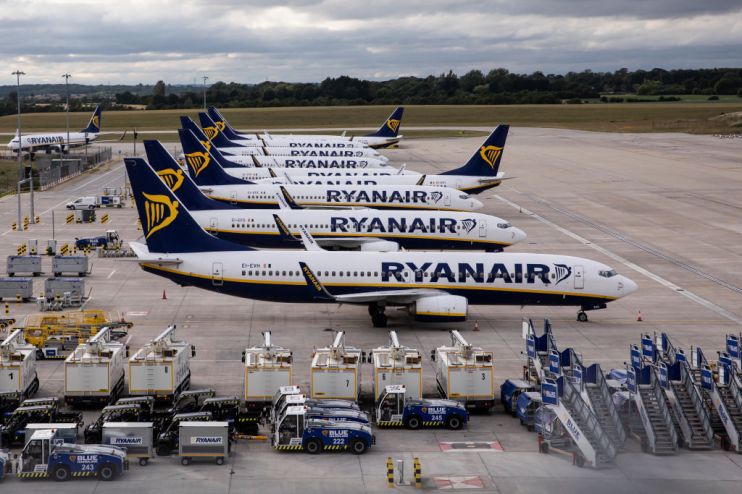Belarus’ act of aviation piracy and kidnapping proves the obvious: anyone can bully the EU

Yesterday, within about five minutes of one another, both my partner and a colleague drolly made the same comment: “I know Ryanair is tough about customer service, but I didn’t realise you had to pay extra to avoid being kidnapped.”
There were, of course, referring to the dreadful act of piracy that occurred over the weekend. An Irish plane, Ryanair Flight 737, flying from Athens to Vilnius was hijacked and forced to land in Belarus. Aboard the plane was Belarusian political dissident Roman Protasevich who once headed the influential opposition messaging app, Nexta. Protasevich played a critical role in organizing the nationwide demonstrations in August 2020 that briefly threatened the rule of Alexander Lukashenko, Belarus’ dictator of the past 26 years.
It is clear the abduction was an act of state-sponsored terror, whose express aim was to arrest Protasevich. Lukashenko ordered Belarusian air traffic controllers to alert Flight 737 there was a suspected bomb on board, and then sent a MiG-29 fighter to escort the plane to the ground. Once it had landed, Protasevich was swiftly arrested. As he was being led away, he nervously whispered to other passengers, “They will execute me here.” His present whereabouts are unknown.
In political risk terms, let us be clear on what just happened here. Russian President Vladimir Putin lurks behind Lukashenko’s thuggish behavior. Following the mass protests of last summer in Minsk and other cities, Lukashenko is utterly beholden to Putin for his political, economic, and even personal survival. He would never have impersonated Blackbeard without the Kremlin’s backing.
Second, Putin and Lukashenko have found yet another chance to highlight the EU’s glaring strategic limitations. An Irish plane, flying from Greece to Lithuania (all EU member states) was hijacked and a political prisoner, sheltered by Brussels, was forcibly removed from its sovereign sway.
The immediate response was just as one would expect: useless. Commission President Ursula von der Leyen bleated that the piracy was “utterly unacceptable,” and the “outrageous and illegal behavior of the regime in Belarus will have consequences,’ without once spelling out what they might be.
The Lithuanian Prime Minister, Ingrida Simonyte, was even more anemic, meekly noting, “The unprecedented situation will have to be investigated very thoroughly.” Given these pathetic responses to an obvious act of state-sponsored piracy, does anyone wonder why pirates might decide to hijack one of the EU’s airliners?
The first duty of any government is the protection of its citizens. Yet a planeload of Europeans were thrown into grave danger and the response was only a promise of a “thorough investigation”. As to the consequences, will they amount to anything more than the usual ineffectual sanctions, and the snubbing of Belarusian officials at EU cocktail parties? The EU is worse than unserious; it is decadent.
Long allergic to military power or even to thinking in strategic terms, the EU’s analytical misreading of the world makes it a born victim. For years, we have heard how the EU is a post-modern power, how it has transcended the nation-state, somehow evolving beyond old-fashioned balance of power thinking, grubby national interests, and the fact that in an anarchic world the threat of force is a necessary tool to protect one’s people.
Of course, this utopian nonsense has fooled no one but the EU’s own doe-eyed acolytes. The master realist Putin is well aware that the rules of the international system have changed little from the time of the Greeks. The world is not a debating society; sticks are needed as well as carrots to leverage opponents and allies alike to attain national interests.
The EU talks incessantly of carrots, of the economic tool of power, but almost never of sticks. That would be fine if the world were populated entirely by rabbits. As Lukashenko’s act of terror has made clear, it is not. Instead, it is often populated by pirates.
There are many reasons the EU is a declining great power. Its sclerotic long-term growth rate, overly-cosseted safety net, tangle of bureaucratic rules, and merely the perpetual difficulty in getting 27 different countries to agree on more than an ice cream flavour all explain its obvious decline. But, not least of all, its otherworldly view of the lack of need for force in an unruly world has hastened its downfall.